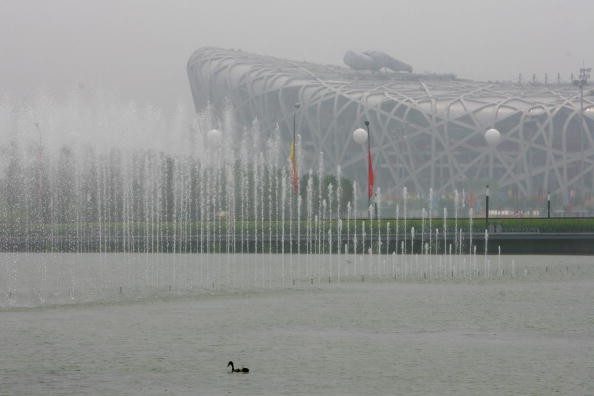
Beijing is one of the most polluted cities in the world. During the time the Olympics were being held in Beijing in 2008, the Chinese government halted construction, put strict limits on the number of vehicles on the road, and closed factories to ensure that the air was as clean as possible for the big event. Now, a study has found that babies born to mothers who were in their eighth month of pregnancy at that time averaged almost an ounce bigger at birth than babies born at other times.
Previous studies have associated greater amounts of air pollution with lower birth weight, but could not determine when during a pregnancy pollution had the greatest effect. This study found that the effect was seen if the woman was in her eighth month of pregnancy during the period of August 8 to September 24, 2008, but not if her pregnancy was in months 1 through 7 at that time. Babies in the eighth month of pregnancy during the period of cleaner air were an average of 23 grams, or 0.8 ounces, bigger.
The link was seen between birth weight and several aspects of air pollution, including levels of particulate matter, sulfur dioxide, nitrogen dioxide, and carbon monoxide.
This association was found by looked at records of more than 83,500 of births that occurred between 2007 and 2009 in four areas of Beijing.
"These findings not only illustrate one of the many significant health consequences of pollution, but also demonstrate that this phenomenon can be reversed," David Q. Rich, an epidemiologist at the University of Rochester Medical Center and lead author of the study said in a statement.
The study was published in the journal Environmental Health Perspectives.
Earlier studies by other research groups found that the temporary air clean up in Beijing in 2008 gave a temporary boost in heart health. Researchers followed 125 healthy young doctors in Beijing and found that markers for cardiovascular disease were reduced for the duration of the Olympics.



